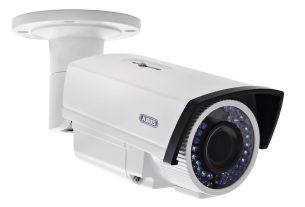DDoS attacks work by overwhelming a target system or network with a deluge of traffic, often from multiple sources, with the intent of disrupting or rendering it inaccessible to legitimate users. These attacks take various forms, ranging from simple volumetric assaults that exhaust available bandwidth, to more sophisticated application-layer attacks that target specific vulnerabilities in web services or applications. The proliferation of IoT (Internet of Things) devices, coupled with the increasing sophistication of botnets amplified the scale and complexity of DDoS attacks. Threat actors now leverage vast networks of compromised devices to launch coordinated, large-scale attacks that cripple even the most robust network infrastructures.
Role of ip booter panels
This is where IP booter panels come into play as an essential tool for maintaining network integrity providing a controlled environment to test the resilience of network systems.
- Stress test infrastructure- IP booter panels network administrators to subject their systems to simulated DDoS attacks, subjecting them to high volumes of traffic and connection requests. This stress testing the breaking point of the infrastructure, revealing potential bottlenecks, capacity limitations, and other be addressed before a real-world attack occurs.
- Evaluate mitigation strategies– Armed with the insights gained from stress testing, network administrators then assess the effectiveness of their DDoS mitigation strategies, such as load balancing, traffic filtering, and automated response mechanisms. IP booter panels provide a controlled testbed to validate the efficacy of these measures withstand the onslaught of a real-world DDoS attack.
- Optimize network configurations– The data and observations gathered from IP booter panel testing also inform the optimization of network configurations, such as bandwidth allocation, server provisioning, and traffic prioritization. By fine-tuning these parameters, network administrator’s resilience and responsiveness of their infrastructure, better equipped to handle sudden spikes in traffic or malicious attacks.
- Train security teams– what is the best IP Booter? IP booter panels also serve as valuable training tools for security teams, allowing them to practice incident response procedures and develop their skills in detecting, analyzing, and mitigating DDoS attacks. This hands-on experience helps security professionals stay ahead of the curve, better prepared to respond to real-world threats.
- Validate vendor claims– When deploying new security solutions or working with service providers, IP booter panels is used to validate the claims and promises made by vendors. By subjecting these solutions to rigorous stress testing, network administrators are investing in technologies and services that effectively protect their infrastructure against DDoS attacks.
Ethical considerations
It’s important to acknowledge that the use of IP booter panels, while essential for network security, also comes with ethical considerations. These tools, if misused are employed for malicious purposes, such as launching DDoS attacks against unsuspecting victims.
It is crucial that the use of IP booter panels be strictly limited to authorized and ethical activities, such as internal testing, security research, and the validation of DDoS mitigation solutions. Network administrators must ensure that these tools are only accessible to trusted security personnel and that strict access controls and logging mechanisms are in place to prevent unauthorized use.


